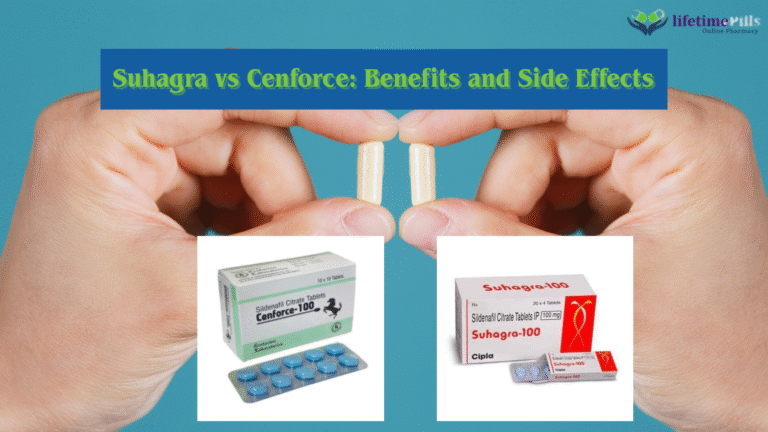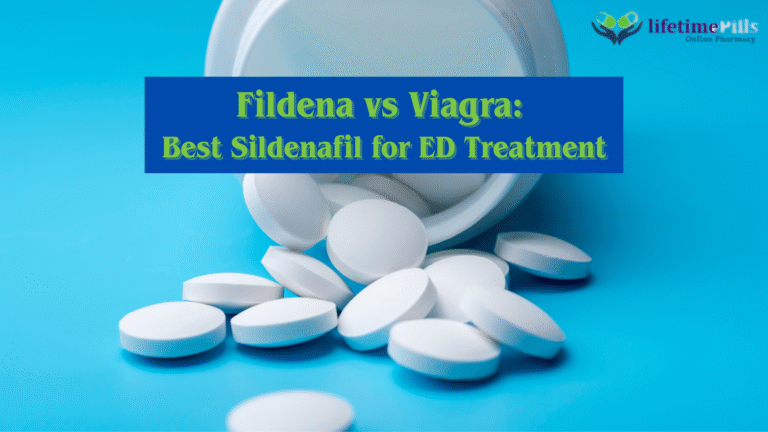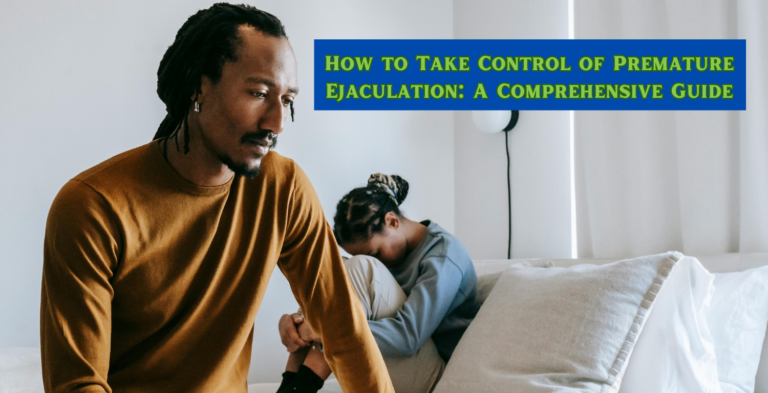What is the Main Cause of Erectile Dysfunction?

What is the Main Cause of Erectile Dysfunction? A Deep Dive into the Root Causes
Erectile dysfunction (ED)—the persistent inability to achieve or maintain an erection sufficient for satisfactory sexual performance—is a condition that affects millions of men worldwide. Although it’s often whispered about in embarrassment, ED is a very common medical problem and, importantly, often signals underlying health issues that go far beyond the bedroom.
Erectile dysfunction (ED) is far more common than many people realize. Yet despite the prevalence of TV ads and whispered conversations about “the little blue pill,” few truly understand what causes ED—and why it happens in the first place.
While numerous factors can contribute, the main cause of erectile dysfunction in most men—particularly those over 40 is poor blood flow to the penis, usually due to vascular (blood vessel) problems. But the story doesn’t stop there.
It’s estimated that over 30 million men in the United States alone experience some degree of ED. Globally, the numbers soar even higher. But while it’s widespread, ED remains shrouded in stigma, silence, and confusion.
The truth is, there’s rarely a single cause. Instead, ED typically results from a combination of physical, psychological, and lifestyle factors. However, one dominant culprit consistently emerges in research and clinical practice: vascular (blood flow) problems—especially those tied to underlying cardiovascular disease.
But what is the main cause of ED? The answer is both simple and complex. ED is rarely the result of a single cause. Instead, it often arises from a combination of physical, psychological, and lifestyle factors. However, if we had to pinpoint one overarching cause, it would be vascular (blood flow) issues, as these underlie the vast majority of physical cases of ED.
Let’s explore, What is the Main Cause of Erectile Dysfunction? in detail.
Main Cause Of Erectile Dysfunction: Blood Flow Problems
The number one physical cause of ED is poor blood flow.
Here’s why blood flow gets blocked:
Clogged arteries (atherosclerosis): Fat and plaque build up inside blood vessels, making them narrow or stiff. Less blood can get through.
Heart disease: The same problems that affect your heart can also block blood to the penis.
High blood pressure or high cholesterol: These damage blood vessels.
Diabetes: Can harm blood vessels and nerves.
Other Causes of ED
Erectile dysfunction (ED) is often thought of as a physical problem—and indeed, it frequently is. But mental health and stress are powerful contributors to ED, sometimes acting alone and sometimes amplifying physical causes.
Let’s break down how this happens.
The Mind Body Connection in Erections
An erection is not just a physical reaction. It’s driven by complex communication between your brain and your body. Brain signals trigger arousal. Nerves release chemicals that relax blood vessels in the penis. Blood flows in, creating an erection.
Anything that disrupts these brain signals—like anxiety, depression, or chronic stress—can interfere with this process.
Stress: The Body’s Emergency Brake
Stress activates your body’s “fight or flight” response. Stress hormones like cortisol and adrenaline rise. Your body prioritizes survival over reproduction. Blood flow is diverted away from sexual organs to vital areas like the heart and muscles.
In simple terms: When you’re stressed, your body thinks about escape, not sex. Even if you’re mentally trying to engage in sex, stress hormones can physically block erections.
Anxiety and Performance Anxiety
One of the most common psychological causes of ED is performance anxiety. A man worries he might not “perform well.” This anxiety leads to adrenaline spikes. Adrenaline constricts blood vessels in the penis. The erection fails, reinforcing more anxiety. This creates a vicious cycle:
Anxiety → erection trouble → more anxiety → repeated ED episodes
It can become so powerful that even thinking about sex triggers worry and loss of erection.
Depression and Low Libido
Depression affects sexual function in several ways:
Decreased interest in sex (low libido), Low self-esteem, making a man feel “undesirable”, Fatigue and lack of motivation, Disrupted brain chemicals (dopamine, serotonin) that play roles in sexual arousal. Men with depression may be less interested in sex, or struggle to maintain an erection even when aroused.
Relationship Problems
Sex doesn’t happen in a vacuum. Mental health challenges often stem from—or cause—relationship issues, such as: Lack of communication, Resentment or unresolved conflict, Emotional distance. When a man doesn’t feel emotionally connected to his partner, his body may struggle to respond sexually.
Guilt or Cultural Beliefs
Some men carry guilt or negative beliefs about sex, sometimes due to: Strict cultural or religious upbringing, Past sexual trauma, Feelings of shame about sexual desire. These psychological burdens can suppress sexual arousal or create anxiety that blocks erections.
Fatigue and Burnout
Chronic stress from work, family responsibilities, or financial problems can leave men feeling drained and disinterested in sex. Physical fatigue makes sexual effort feel overwhelming. Emotional exhaustion dampens libido.
Fatigue alone can make achieving an erection difficult, even without anxiety or depression.
Medications and Substances
Certain medications including some for high blood pressure, depression, and prostate issues—can cause ED as a side effect. Alcohol, smoking, and recreational drug use also affect sexual performance.
Signs That ED Might Be Psychological
- Sudden onset rather than gradual.
- Erections still happen during sleep or masturbation.
- Specific triggers (e.g., anxiety with a partner) lead to loss of erection.
If these sound familiar, mental health may be a major contributor to your ED.
Lifestyle Habits can be cause
Certain habits can raise your risk of ED:
- Smoking
- Drinking too much alcohol
- Using drugs
- Being overweight
- Not exercising
Can ED Cured?
Impotence (another term for erectile dysfunction) can often be successfully treated with oral medicines.
However, it’s important to understand a few key points:
How Oral ED Medications Work
Oral medicines like:
Sildenafil (Viagra), Tadalafil (Cialis), Vardenafil (Levitra), Avanafil (Stendra) all belong to a class called PDE5 inhibitors.
These drugs don’t automatically “create” an erection on their own. Instead, they improve blood flow to the penis in response to sexual stimulation. They work by relaxing blood vessels in the penis, helping blood flow in more easily and stay trapped long enough for an erection.






